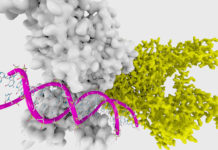From the New York Times Book Review: In 1975, two English biologists, Robin Holliday and John Pugh, and an American biologist, Arthur Riggs, independently suggested that methylation, a chemical modification of DNA that is heritable and can be induced by environmental influences, had an important part in controlling gene expression. How it did this was not understood, but the idea that through methylation the environment could, in fact, alter not only gene expression but also the genetic program rapidly took root in the scientific community.
As scientists came to better understand the function of methylation in altering gene expression, they realized that extreme environmental stress—the results of which had earlier seemed self-explanatory—could have additional biological effects on the organisms that suffered it. Experiments with laboratory animals have now shown that these outcomes are based on the transmission of acquired changes in genetic function. Childhood abuse, trauma, famine, and ethnic prejudice may, it turns out, have long-term consequences for the functioning of our genes.
Epigenetics has also made clear that the stress caused by war, prejudice, poverty, and other forms of childhood adversity may have consequences both for the persons affected and for their future—unborn—children, not only for social and economic reasons but also for biological ones.















